GOING CUCKOO
The curious case of forgeries of an avian nature
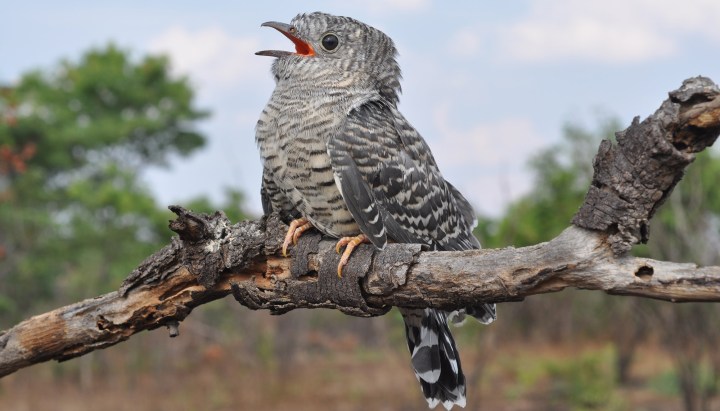
In a remote corner of Zambia, an arms race is being fought — and the loser could face the threat of extinction.
The arms race is over the eggs of the fork-tailed drongo, a common bird species found in South Africa that happens to be the only known host of the brood parasite, the African cuckoo.
For aeons, the African cuckoo has been laying near-perfect replica eggs in fork-tailed drongo nests. By tricking the drongos into believing the eggs are their own, they leave their hosts to rear their young. Once hatched, the cuckoo chick pushes the remaining eggs out of the nest and is fed by its foster parents, growing to twice the size of an average fork-tailed drongo.
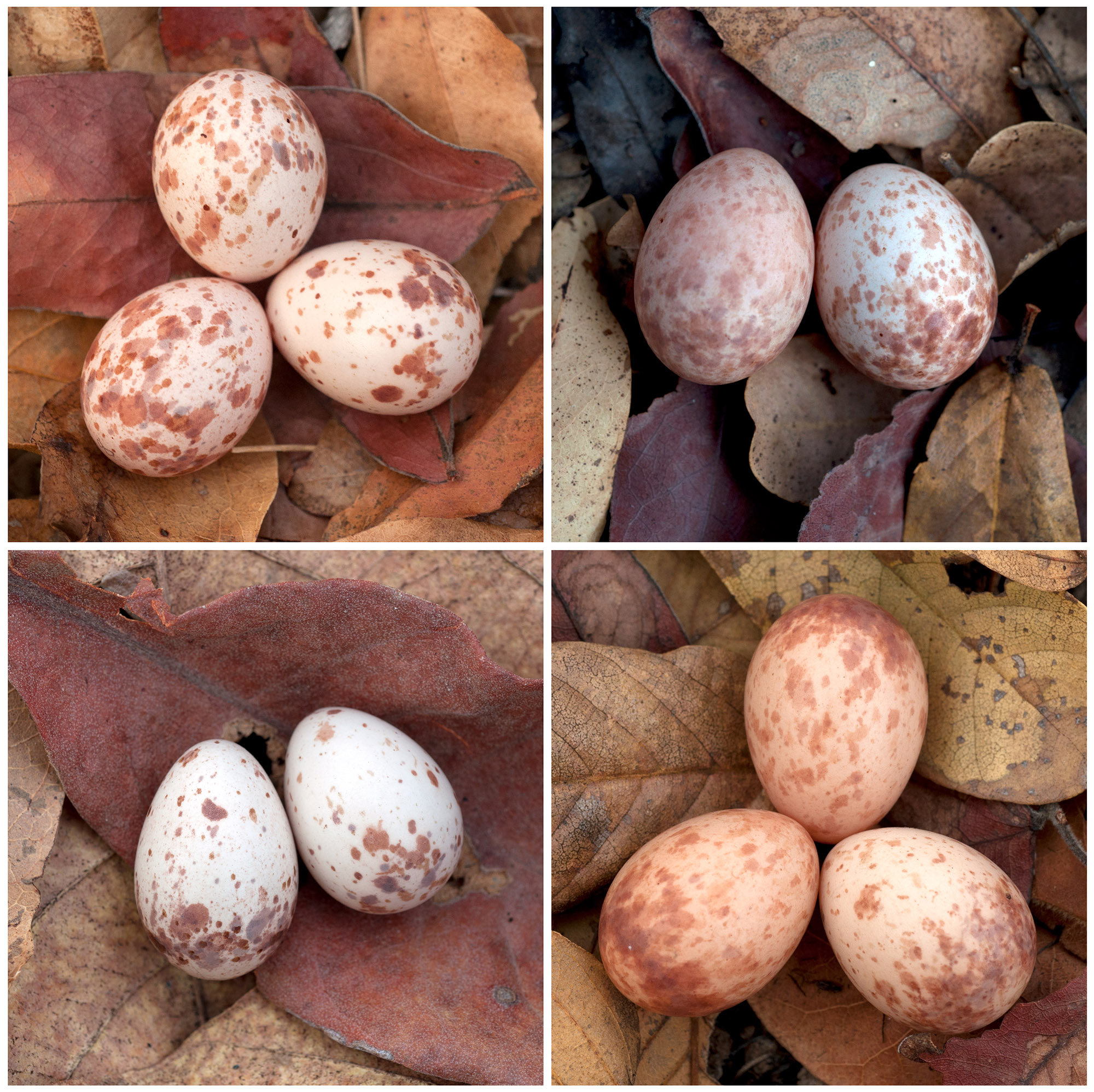
A selection of fork-tailed drongo clutches that have been parasitised by African cuckoos. In each photo, the egg to the right is a cuckoo egg. (Photo: Claire Spottiswoode)
But now researchers have found that fork-tailed drongos in southern Zambia have developed an extraordinary eye for spotting these forgeries. Once identified, the cuckoo egg is turfed out of the nest and ends up on the ground.
“They seem to have a good idea of what their egg patterns look like, and they will throw out anything that doesn’t match that,” says lead researcher and zoology doctoral student, Jess Lund.
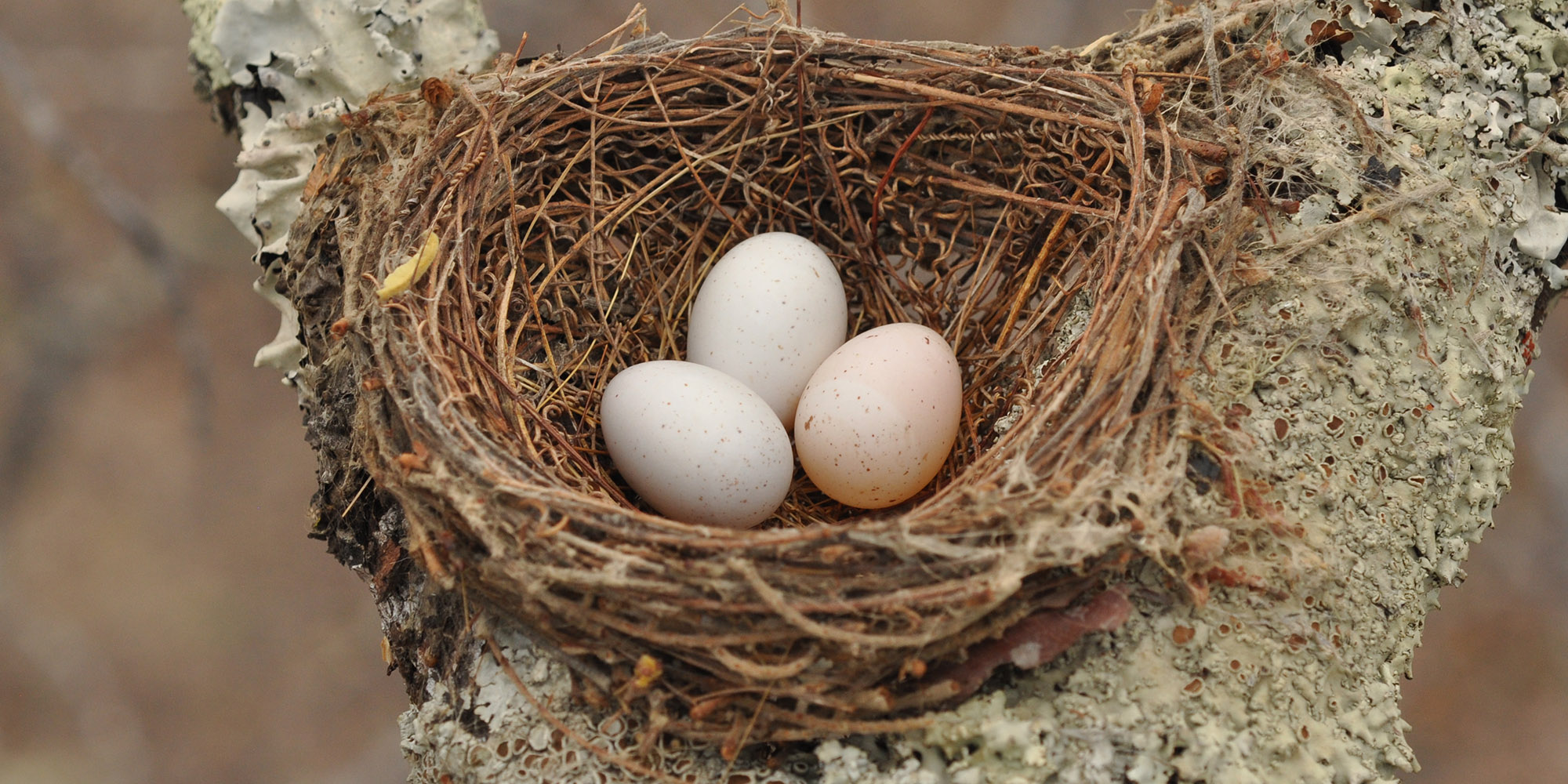
A fork-tailed drongo nest with a cuckoo egg on the bottom right. (Photo: Jess Lund)
The team comprised researchers from the University of Cambridge and the University of Cape Town, working in collaboration with a community in Zambia. Their findings were published in the journal Proceedings of the Royal Society B: Biological Sciences.
Publication comes after four years of fieldwork in the Choma district in Zambia where the researchers were surprised to discover how closely African cuckoo and drongo eggs matched up. Sometimes they even had difficulty spotting the different eggs in drongo nests.
Still, drongos somehow seemed to be able to pick out the imposter eggs more often than not.
The scientists conducted several experiments and observations to get a measure of the African cuckoo’s ability to trick its host into rearing its chick.
They first recorded the differences in colour and patterns of the fork-tailed drongo eggs and the cuckoo eggs. This confirmed that, on average, both were almost identical.
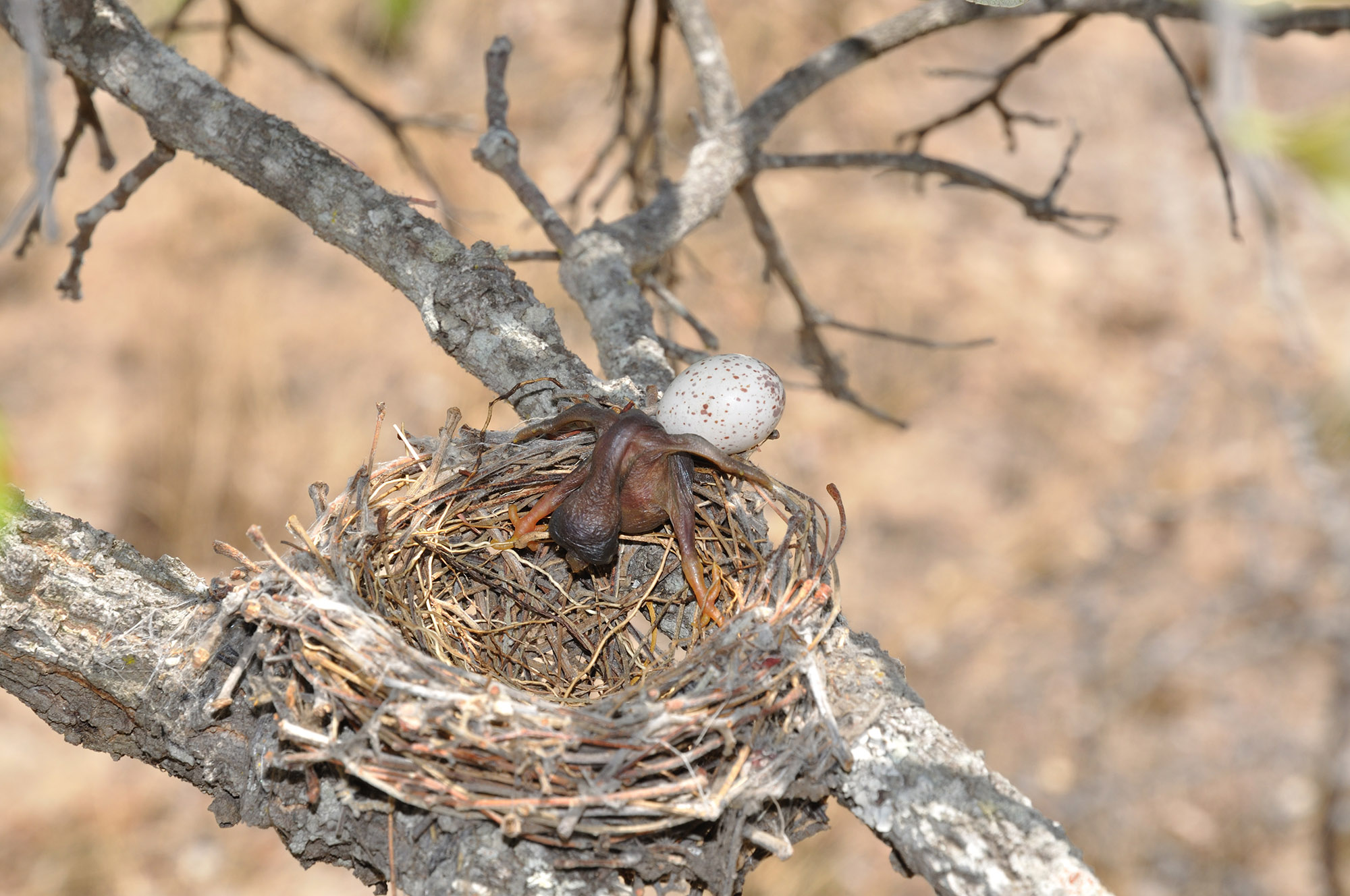
A newly hatched African cuckoo chick in a fork-tailed drongo nest, about to throw a drongo egg out of the nest. (Photo: Claire Spottiswoode)
Second, they conducted egg rejection experiments where they would place other fork-tailed drongo eggs into nests as a proxy for African cuckoo eggs.
From what they found, they were able to create a model that predicted how often an African cuckoo had its eggs rejected by a fork-tailed drongo. It was an astonishing 93.7%.
“So that was obviously very surprising because you can’t really have a sustainable population of females only fledging two chicks in her lifetime,” Lund explains.
The African cuckoo spends its winters in Central Africa before migrating to southern Africa to breed. It is estimated that the female African cuckoo will lay 20 eggs in a season.
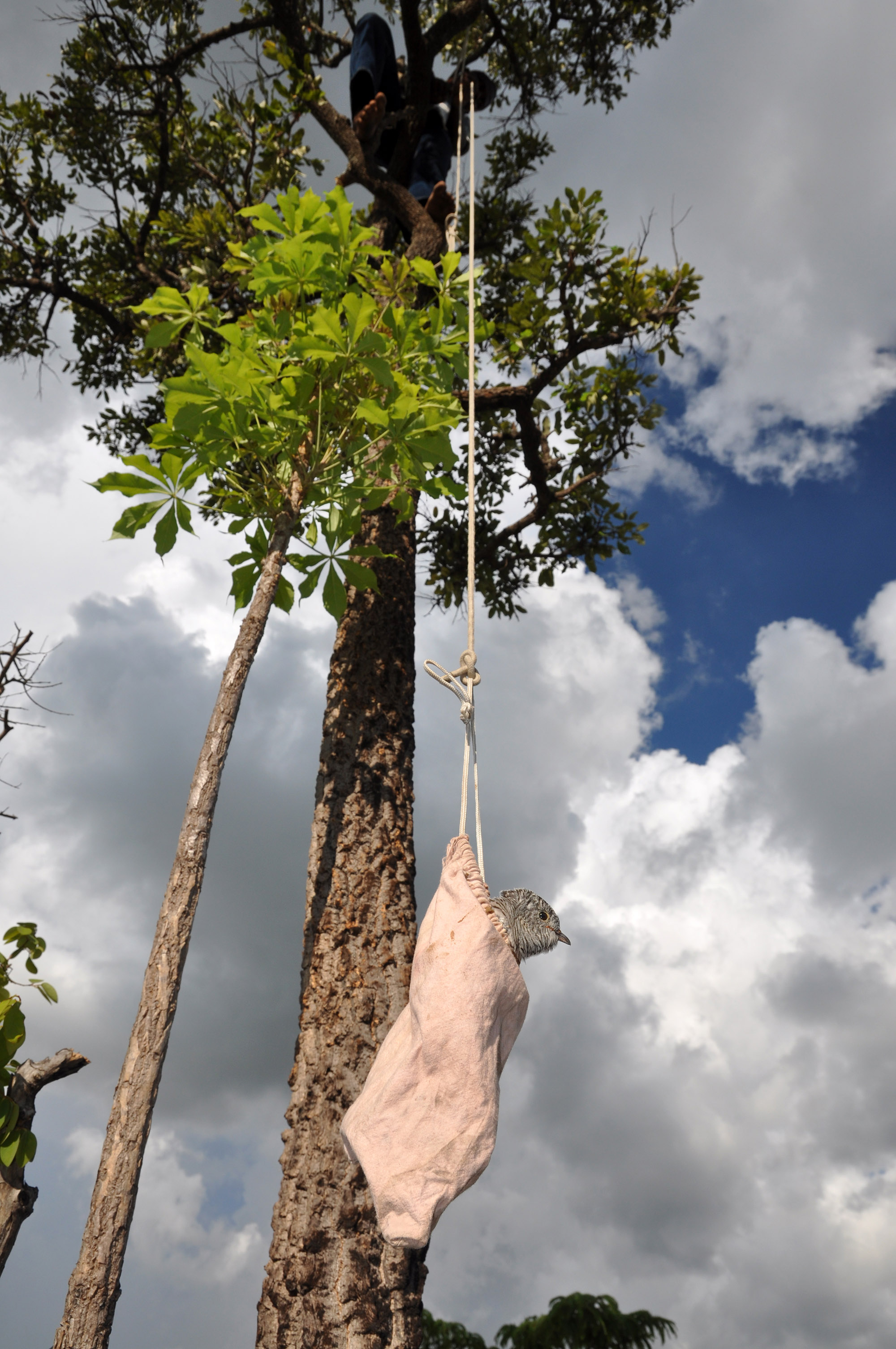
Co-author of the paper Collins Moya lowers an African cuckoo chick from a tree in southern Zambia. After the chick was measured it was returned to the nest. (Photo: Claire Spottiswoode)
The results of this study have puzzled the scientists because their research suggests the African cuckoo’s poor success rate should mean it would be unable to sustain its population. However, the parasite remains a common bird throughout the continent.
It could be that the drongos of Choma have developed a keener eye in spotting forgeries than their compatriots elsewhere in Africa.
But it is an advantage Lund believes the drongos might not have for too long.
“It could be that they just have a very hard time in Zambia, and in other areas, they’re much better off,” says Lund. “But one could also look at this in terms of evolutionary cycles.
“So, if African cuckoos became rarer throughout Africa, then there would be less selection on fork-tailed drongos to be very good egg rejecters. If we relaxed the selection on African cuckoos, then that would allow their population to increase again.” DM




















Comments - Please login in order to comment.